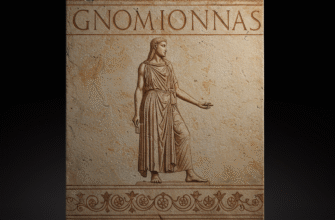The dance of the leaves in an autumn breeze, the howl of a gale against windowpanes, the gentle caress of a summer wind – these are experiences as old as humanity itself. Long before meteorology offered scientific explanations, our ancestors looked to the skies with a mixture of awe, fear, and reverence. The invisible forces that shaped their world, bringing life-giving rain or devastating storms, were not mere atmospheric pressures. They were entities, powerful beings who pulled the strings of weather, and among them, the rulers of the winds held a special, often capricious, sway.
Aeolus: The Appointed Guardian of the Gusts
Perhaps no figure is more synonymous with the command of the winds in Western mythology than Aeolus. In the rich tapestry of Greek lore, Aeolus wasn’t typically a god who generated gales from his own being, but rather a divinely appointed keeper, a warden tasked by Zeus himself with the monumental job of corralling the tempestuous Anemoi, the wind gods. Imagine his domain: a mythical floating island named Aeolia, a place of feasting and familial harmony, yet also the site of a vast cave or, in some tellings, a sturdy ox-hide bag, wherein the boisterous winds were imprisoned, awaiting their master’s command to be unleashed upon the world.
The Fateful Gift and a Lesson in Trust
The most famous tale involving Aeolus is undoubtedly his encounter with the wily hero Odysseus, as recounted in Homer’s “Odyssey.” After enduring harrowing trials, Odysseus and his weary crew were warmly welcomed by Aeolus, who hosted them for a full month. As a parting gift, and a significant boon for their journey home to Ithaca, Aeolus presented Odysseus with a remarkable present: a leather bag tied with a silver cord, containing all the winds except for the gentle Zephyrus, the West Wind, which was left free to guide their ships homeward. Aeolus gave strict instructions that the bag must not be opened. However, as Ithaca came into sight, Odysseus, exhausted, fell asleep. His avaricious crew, suspecting the bag contained gold and treasures Aeolus had gifted their captain, succumbed to curiosity and greed. They untied the bag, and disaster struck. The released winds roared out, creating a furious storm that blew their ships far back to Aeolia.
When a chagrined Odysseus returned to Aeolus, pleading for help once more, the Keeper of the Winds offered no further assistance. He declared that Odysseus must be cursed by the gods for such misfortune to befall him after such a generous gift, and he would not interfere with the will of the Olympians. This episode highlights not just the power Aeolus wielded, but also a moral: the destructive consequences of mistrust and disobedience, and the idea that even divine aid can be squandered by human folly.
Aeolus, as depicted in Homer’s “Odyssey,” was the son of Hippotes and a mortal king who was made keeper of the winds by Zeus. He resided on the floating island of Aeolia with his six sons and six daughters. This specific role distinguishes him from other wind deities who might embody the winds themselves.
The Anemoi: Personalities Riding the Currents
While Aeolus kept the winds in check, the winds themselves in Greek mythology were often personified as the Anemoi, sons of Astraeus, the Titan god of dusk, and Eos, the Titan goddess of the dawn. These weren’t just formless breezes; they were distinct entities, often depicted as winged men, each with his own temperament and domain, blowing from the four cardinal directions. Their natures were as varied as the weather they brought, reflecting the ancient Greeks’ keen observation of their environment.
From Frigid Blasts to Gentle Sighs
Boreas, the North Wind, was a figure of raw, untamed power. He was cold, impetuous, and often violent, associated with the harshness of winter. Clad in a billowing cloak, with shaggy hair and beard, he was said to sweep down from the Thracian mountains. One of his most famous myths involves his passionate, if forceful, abduction of Orithyia, an Athenian princess, with whom he fathered several children, including Calais and Zetes, winged heroes of the Argonautic expedition. In stark contrast stood Zephyrus, the West Wind. He was generally the gentlest of the Anemoi, the harbinger of spring and early summer, wafting life-giving breezes that encouraged flowers to bloom and fruits to ripen. Yet, even Zephyrus had a tragic tale, being associated with the accidental death of Hyacinth, a beautiful Spartan youth beloved by both Apollo and Zephyrus; a discus thrown by Apollo was supposedly diverted by a jealous Zephyrus, striking Hyacinth fatally.
The Southerly Storms and Eastern Uncertainties
Notus, the South Wind, held dominion over the late summer and early autumn. He was often associated with heavy, moisture-laden air, bringing fog, humidity, and sometimes destructive storms, particularly at the end of the sailing season. He was generally seen as a wetter, more oppressive wind than his brothers. Eurus, the East Wind, is perhaps the least clearly defined of the four primary Anemoi. Dwelling near the palace of Helios, the sun god, in the far east, Eurus wasn’t consistently associated with any particular season but was often considered an unlucky wind, bringing warmth but also potentially unsettled weather and storms. He didn’t feature as prominently in myths as Boreas or Zephyrus, leaving his character somewhat more ambiguous.
Whispers from Other Pantheons: Global Wind Deities
The desire to give form and story to the invisible might of the wind was by no means exclusive to the ancient Greeks. Across cultures and continents, similar figures emerged, each reflecting local climates and beliefs, yet united by their command over the air’s unseen currents. These deities underscore a universal human response to the profound impact of weather.
Norse Narratives of Wind and Wave
In the rugged lands of Scandinavia, where the sea was a lifeline and a constant peril, wind deities played significant roles. Njord, of the Vanir tribe of gods, was a god of the sea, seafaring, wealth, and, crucially, the wind. He was invoked for favorable winds for voyages and fishing, representing the more benign aspects of air currents. While Thor is famed as the thunder god, his mighty hammer Mjolnir conjuring lightning and thunder, the storms he commanded invariably involved powerful, driving winds. Even Odin, the Allfather, had connections to the wind, sometimes associated with the furious gales that accompanied the Wild Hunt, a ghostly procession through the winter sky.
Egyptian Breaths of Life and Sky
Ancient Egyptian cosmology also featured a prominent god of the air. Shu was one of the primordial Ennead of Heliopolis, the god of air, wind, and (interestingly) sunlight, or at least the dry, sun-filled air. His primary cosmic role was to separate his children, Geb (the earth) and Nut (the sky), holding Nut aloft so that life could flourish in the space between. Shu thus represented the life-sustaining atmosphere, the very breath of the world, and by extension, the winds that moved within it.
Roman Echoes: The Venti
The Romans, heavily influenced by Greek culture, adopted and adapted many Hellenic deities. Their wind gods, the Venti, were direct counterparts to the Anemoi: Aquilo (Boreas), Favonius (Zephyrus), Auster (Notus), and Vulturnus (Eurus). While their names changed, their characteristics and associated myths largely mirrored their Greek origins. Above them all, Jupiter, the Roman equivalent of Zeus, held supreme command over the sky and all its phenomena, including the winds, which he could unleash or restrain as he saw fit.
Ancient Mesopotamia and Slavic Skies
Further afield, in the fertile crescent of Mesopotamia, Enlil was one of the most powerful deities in the Sumerian and Akkadian pantheons. His name literally means “Lord Wind” or “Lord Air,” and he governed wind, air, earth, and storms. Enlil could be a destructive force, unleashing devastating gales and floods, but also a benevolent one, as wind and breath were intrinsically linked to life. In Slavic mythology, Stribog was revered as the god and spirit of the winds, sky, and air. He was often depicted as an old man, the “grandfather of winds,” distributing his windy “grandchildren” across the eight directions, influencing weather patterns and carrying seeds and whispers across the land.
Why Rule the Winds? The Significance of Weather Deities
The prevalence of wind gods across diverse cultures speaks volumes about the importance of atmospheric phenomena in ancient life. For agrarian societies, the right balance of gentle breezes and timely rains was crucial for crop survival; harsh winds or droughts spelled disaster. For maritime cultures, from the Greeks navigating the Aegean to the Vikings braving the North Atlantic, winds were the very engines of travel, trade, and warfare. Favorable winds were divine blessings, while storms represented the wrath or caprice of powerful, unseen beings. Personifying these forces provided a framework for understanding, a means of seeking control through prayer and ritual, and a way to attribute agency to the often chaotic and unpredictable behavior of nature. Deities who could command the winds were, by extension, figures of immense power, reflecting humanity’s deep-seated respect for the forces that shaped their existence.
From Aeolus meticulously managing his bag of gales to Stribog dispatching his airy progeny, the mythologies of wind gods offer a fascinating window into the human psyche. They reveal our ancestors’ attempts to make sense of a world governed by forces far beyond their immediate control. While modern science has demystified the mechanics of wind, the poetic and symbolic power of these ancient sky rulers endures. The wind still whispers tales, and in its many voices – from the soft sigh through the trees to the roar of a hurricane – one can almost hear the echoes of these old gods, a reminder of nature’s enduring majesty and its profound influence on the human story.








